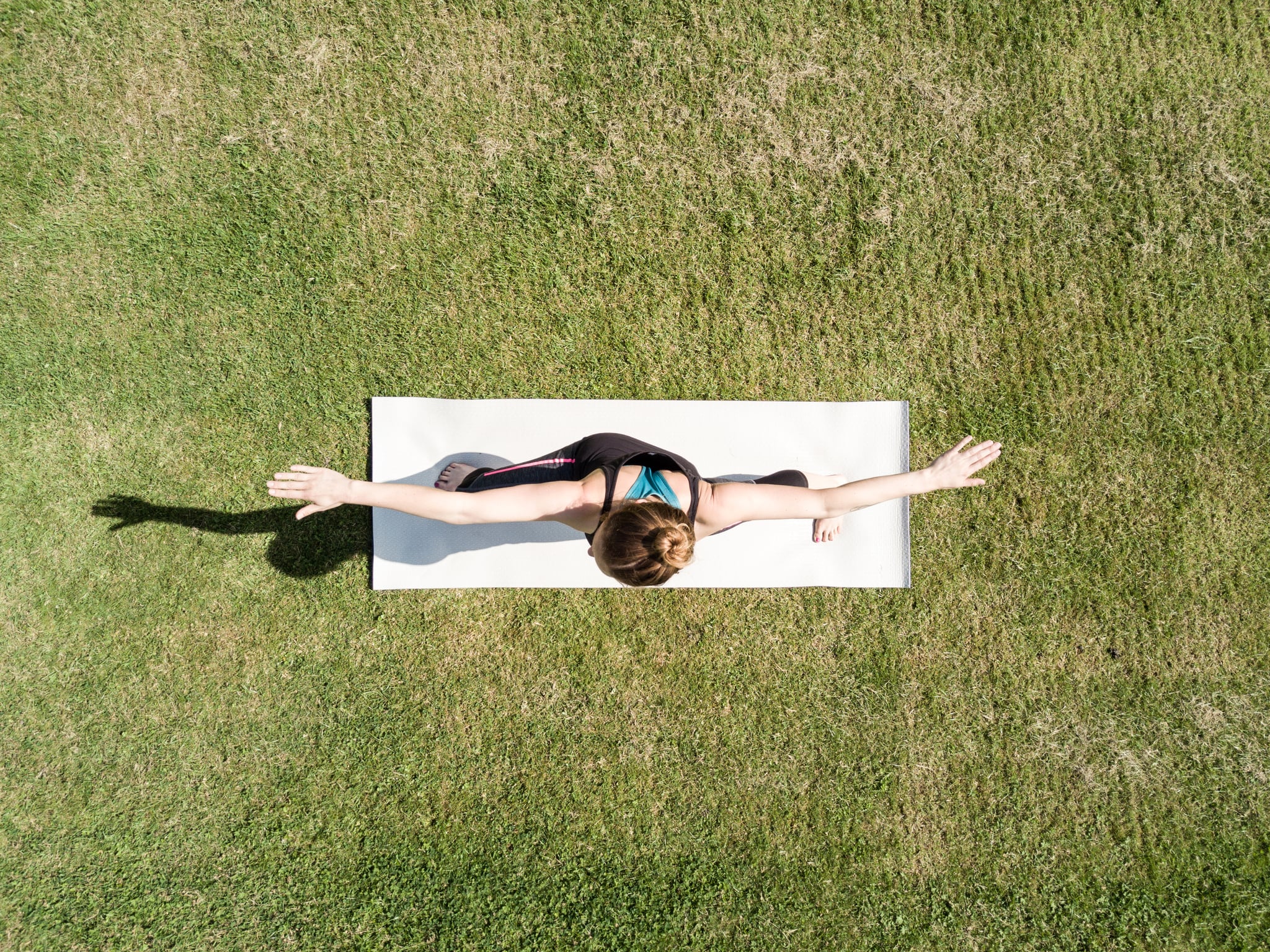

Your body needs rest in order to repair itself after strenuous workouts, which is why active recovery days (or days where you don't do any form of physical activity) are important. Things like walking, foam rolling, or yoga are typically considered forms of active recovery that can ease the discomfort associated with delayed onset muscle soreness, or DOMS. Yoga in particular as been proven to help sore muscles, but there are some types of flows you should avoid, according to two experts.
Yoga That's Good For Active Recovery
NASM-certified personal trainer Denis Morton, Peloton cycling and yoga instructor, defines active recovery as "anything that gets you moving but allows for managed output." This means, he told POPSUGAR, it's not an intense workout, though it can still raise your heart rate a bit. "Soreness is like that guest that stays at your party as long as you let it but makes a hasty exit once you start cleaning up," he said. "Soreness in your muscles requires circulation to move through. If you don't move your muscles and get your blood moving, soreness will linger. Get up, start cleaning the house, and show soreness the door." He normally recommends low-impact cycling, a moderate hike, or swimming. A gentler yoga class is great for this, too, he said.
Denis continued on to say that restorative yoga, yoga with slower movements focused on healing, can definitely help with muscle soreness. "One of the great things about yoga is that even the most basic poses can be fiery and intense or calming and meditative depending on your approach," he told POPSUGAR. "Sequences with longer holds, slower movements, and props for support and alignment can be great opportunities to deepen your breath, drop your shoulders, and reset the mind-body conversation." It's those types of movements - not too intense - that are recommended for active recovery. You can try this restorative yoga sequence or this restorative yoga flow using a wall for support.
Kylan Fischer, a yoga instructor with 10 years of experience, named Yin-style yoga, what she called a form of restorative yoga, as a gentle practice that can be done for active recovery. Yin yoga is about holding poses most commonly on the floor targeting deeper connective tissue and ligaments. It's more passive, and each pose is usually a relaxed stretching position that's held for a few minutes at a time. Specific poses she recommends depends on where in the body you're sore, but "Pigeon is a great go-to stretch that seems to always hit the spot."
Yoga You Probably Shouldn't Do For Active Recovery
Don't do Vinyasa or power yoga when you're looking for active recovery since those are more of a workout, Kylan said. Vinyasa is a strength-focused style of yoga with flowing sequences - take this 40-minute Yoga With Adriene video, for instance - and could be filled with handstands and advanced postures that aim to strengthen and tone the body. Kylan's arm day, she shared, is usually a solid handstand practice.
Denis said you can normally tell which yoga classes are going to be more advanced just by reading the name. "Anything that says, 'Power, Hot, Level 3+' will likely be more of a workout," he noted. In contrast, slower classes geared toward recovery might have the terms "restorative," "slow," or "gentle" in the title. This 30-minute power flow for the abs and butt is an example of power yoga you might not want to do as active recovery. Instead, you should try this 30-minute restorative yoga flow for stress relief.
Here's When You Shouldn't Do Yoga, Period
Kylan stressed the importance of reevaluating whether you should do yoga if you're physically injured, pregnant, or sick. "If you are experienced and know how to modify your practice safely, then go for it," she said. "But if you don't know specific modifications, then you should ask a yoga teacher first. In the end, simply listen to your body." Denis always recommends consulting a doctor before beginning any new exercise regimen, even yoga, especially if you think you may have any injuries or conditions that might conflict with your flow. He too said listening to your body is crucial because "it's the only place you'll always wake up."


0 comments :
Post a Comment